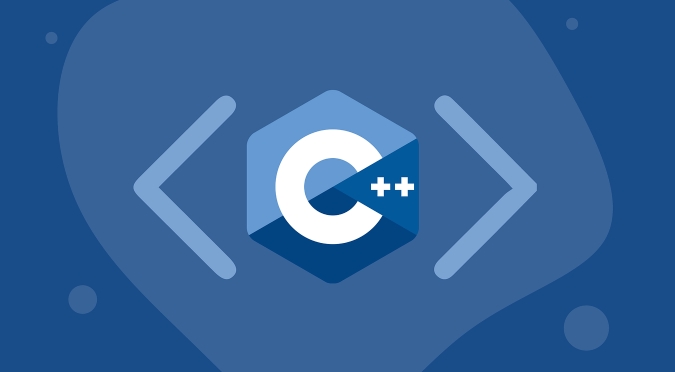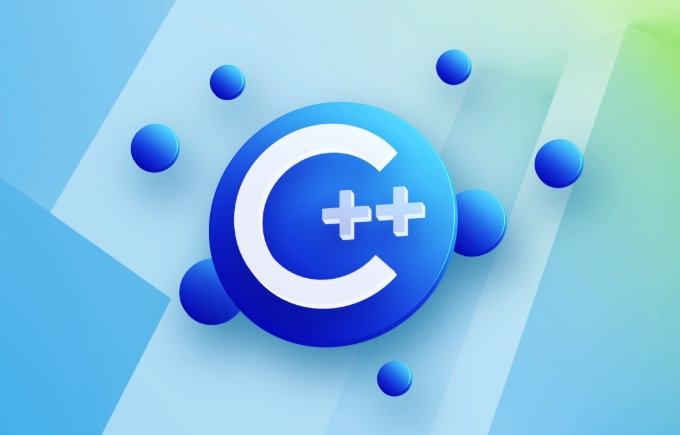People who study Python transfer to C The most direct confusion is: Why can't they write like Python? Because C, although the syntax is more complex, provides underlying control capabilities and performance advantages. 1. In terms of syntax structure, C uses curly braces {} instead of indentation to organize code blocks, and variable types must be explicitly declared; 2. In terms of type system and memory management, C does not have an automatic garbage collection mechanism, and needs to manually manage memory and pay attention to freeing resources. RAII technology can assist resource management; 3. In function and class definitions, C needs to explicitly access modifiers, constructors and destructors, and supports advanced functions such as operator overloading; 4. In terms of standard libraries, STL provides powerful containers and algorithms, but needs to adapt to generic programming ideas; 5. Common pitfalls include adding semicolons after each statement, using std:: to access the namespace, including necessary header files, and separation of the compilation and operation process. Mastering these key differences will help Python developers transition smoothly to C.

People who study Python transfer to C, the most direct confusion is: Why can't they write like Python? C looks more complex and wordy, but its underlying control capabilities and performance advantages are irreplaceable by Python. This article starts from the perspective of a developer familiar with Python and helps you quickly understand the core differences and key usage of C.

Basic syntax structure: no indentation coercion, type must be declared
Python organizes code blocks by indentation, while C uses curly braces {} . This may not be used to at first, but after adapting, it is actually more free, especially when writing complex logic.

More importantly, C must declare variable types , unlike Python that can dynamically assign values:
int age = 25; std::string name = "Alice";
Compare Python:

age = 25 name = "Alice"
You will find C is "verbose" to write, but this explicit declaration helps compiler optimization and avoid runtime errors.
In addition, the entry function of C is main() , and the return type must be int . Usually, the end of the program is returned to 0 , which means that the program ends normally:
#include <iostream>
using namespace std;
int main() {
cout << "Hello, World!" << endl;
return 0;
}Type system and memory management: no garbage collection mechanism
This is one of the biggest differences between C and Python. Python has automatic garbage collection (GC), so you don't have to worry about memory leaks. But C does not, memory needs to be managed manually, especially when you use pointers.
For example, you allocate an object on the heap:
int* p = new int(10); // Remember to release delete p after use;
If you don't delete it will cause a memory leak. This should be paid special attention to for those who are used to Python's automatic memory management.
There is another concept called "RAII" (Resource Acquisition Is Initialization), which is a very common resource management method in C. For example, file operations, locks, etc. can automatically handle resource release through constructors/destructors.
Functions and classes: object-oriented styles are similar but implementations are different
Python's class definition is very concise, while C's class requires more details, such as access modifiers (public/private), constructors, destructors, etc.
Let’s take a look at a simple class definition:
class Person {
private:
std::string name;
public:
Person(std::string n) : name(n) {}
void saysHello() {
std::cout << "Hello, I'm " << name << std::endl;
}
};When using:
Person p("Bob");
p.sayHello(); You will find that C's class needs to declare member variable access permissions first, and the constructor can also use initialization list ( : name(n) ) to improve efficiency.
In addition, C supports operator overloading, template generics, multiple inheritance and other functions. These Python can also be done, but the implementation method is completely different.
Standard and third-party libraries: STL is your new friend
Python has a rich standard library and pip that can hold various packages. Although C's standard library is not that rich, STL (Standard Template Library) is a very powerful tool set, including containers (vector, map, set), algorithms (sort, find) and iterators.
For example, a list in Python can be written like this:
nums = [1, 2, 3] nums.append(4)
C corresponds to vector :
#include <vector>
std::vector<int> nums = {1, 2, 3};
nums.push_back(4);The design idea of ??STL is generic templates. Although the learning curve is a bit steep, once you master it, you can write efficient and flexible code.
Tips: Reminders of some common pitfalls
- Don't forget the semicolon : C You need to add a semicolon after each statement, which is not required in Python.
- The namespace should be
std::: For example,coutandvectorare both in thestdnamespace. - Don't omit the header files : each functional module needs to include the corresponding header files, such as
<vector></vector>and<iostream></iostream>. - Compilation and running are separate : after writing the code, you must first compile it into an executable file and then run it, unlike Python that directly explains execution.
Basically that's it. C is indeed more cumbersome than Python, but it is an important step to system-level programming, game development, and high-performance computing. As long as you understand the basic syntax and memory model, the road ahead will be much smoother.
The above is the detailed content of C tutorial for people who know Python. For more information, please follow other related articles on the PHP Chinese website!

Hot AI Tools

Undress AI Tool
Undress images for free

Undresser.AI Undress
AI-powered app for creating realistic nude photos

AI Clothes Remover
Online AI tool for removing clothes from photos.

Clothoff.io
AI clothes remover

Video Face Swap
Swap faces in any video effortlessly with our completely free AI face swap tool!

Hot Article

Hot Tools

Notepad++7.3.1
Easy-to-use and free code editor

SublimeText3 Chinese version
Chinese version, very easy to use

Zend Studio 13.0.1
Powerful PHP integrated development environment

Dreamweaver CS6
Visual web development tools

SublimeText3 Mac version
God-level code editing software (SublimeText3)

Hot Topics
 How to use PHP combined with AI to achieve text error correction PHP syntax detection and optimization
Jul 25, 2025 pm 08:57 PM
How to use PHP combined with AI to achieve text error correction PHP syntax detection and optimization
Jul 25, 2025 pm 08:57 PM
To realize text error correction and syntax optimization with AI, you need to follow the following steps: 1. Select a suitable AI model or API, such as Baidu, Tencent API or open source NLP library; 2. Call the API through PHP's curl or Guzzle and process the return results; 3. Display error correction information in the application and allow users to choose whether to adopt it; 4. Use php-l and PHP_CodeSniffer for syntax detection and code optimization; 5. Continuously collect feedback and update the model or rules to improve the effect. When choosing AIAPI, focus on evaluating accuracy, response speed, price and support for PHP. Code optimization should follow PSR specifications, use cache reasonably, avoid circular queries, review code regularly, and use X
 PHP calls AI intelligent voice assistant PHP voice interaction system construction
Jul 25, 2025 pm 08:45 PM
PHP calls AI intelligent voice assistant PHP voice interaction system construction
Jul 25, 2025 pm 08:45 PM
User voice input is captured and sent to the PHP backend through the MediaRecorder API of the front-end JavaScript; 2. PHP saves the audio as a temporary file and calls STTAPI (such as Google or Baidu voice recognition) to convert it into text; 3. PHP sends the text to an AI service (such as OpenAIGPT) to obtain intelligent reply; 4. PHP then calls TTSAPI (such as Baidu or Google voice synthesis) to convert the reply to a voice file; 5. PHP streams the voice file back to the front-end to play, completing interaction. The entire process is dominated by PHP to ensure seamless connection between all links.
 How to develop AI intelligent form system with PHP PHP intelligent form design and analysis
Jul 25, 2025 pm 05:54 PM
How to develop AI intelligent form system with PHP PHP intelligent form design and analysis
Jul 25, 2025 pm 05:54 PM
When choosing a suitable PHP framework, you need to consider comprehensively according to project needs: Laravel is suitable for rapid development and provides EloquentORM and Blade template engines, which are convenient for database operation and dynamic form rendering; Symfony is more flexible and suitable for complex systems; CodeIgniter is lightweight and suitable for simple applications with high performance requirements. 2. To ensure the accuracy of AI models, we need to start with high-quality data training, reasonable selection of evaluation indicators (such as accuracy, recall, F1 value), regular performance evaluation and model tuning, and ensure code quality through unit testing and integration testing, while continuously monitoring the input data to prevent data drift. 3. Many measures are required to protect user privacy: encrypt and store sensitive data (such as AES
 python seaborn jointplot example
Jul 26, 2025 am 08:11 AM
python seaborn jointplot example
Jul 26, 2025 am 08:11 AM
Use Seaborn's jointplot to quickly visualize the relationship and distribution between two variables; 2. The basic scatter plot is implemented by sns.jointplot(data=tips,x="total_bill",y="tip",kind="scatter"), the center is a scatter plot, and the histogram is displayed on the upper and lower and right sides; 3. Add regression lines and density information to a kind="reg", and combine marginal_kws to set the edge plot style; 4. When the data volume is large, it is recommended to use "hex"
 How to develop AI-based text summary with PHP Quick Refining Technology
Jul 25, 2025 pm 05:57 PM
How to develop AI-based text summary with PHP Quick Refining Technology
Jul 25, 2025 pm 05:57 PM
The core of PHP's development of AI text summary is to call external AI service APIs (such as OpenAI, HuggingFace) as a coordinator to realize text preprocessing, API requests, response analysis and result display; 2. The limitation is that the computing performance is weak and the AI ecosystem is weak. The response strategy is to leverage APIs, service decoupling and asynchronous processing; 3. Model selection needs to weigh summary quality, cost, delay, concurrency, data privacy, and abstract models such as GPT or BART/T5 are recommended; 4. Performance optimization includes cache, asynchronous queues, batch processing and nearby area selection. Error processing needs to cover current limit retry, network timeout, key security, input verification and logging to ensure the stable and efficient operation of the system.
 PHP integrated AI emotional computing technology PHP user feedback intelligent analysis
Jul 25, 2025 pm 06:54 PM
PHP integrated AI emotional computing technology PHP user feedback intelligent analysis
Jul 25, 2025 pm 06:54 PM
To integrate AI sentiment computing technology into PHP applications, the core is to use cloud services AIAPI (such as Google, AWS, and Azure) for sentiment analysis, send text through HTTP requests and parse returned JSON results, and store emotional data into the database, thereby realizing automated processing and data insights of user feedback. The specific steps include: 1. Select a suitable AI sentiment analysis API, considering accuracy, cost, language support and integration complexity; 2. Use Guzzle or curl to send requests, store sentiment scores, labels, and intensity information; 3. Build a visual dashboard to support priority sorting, trend analysis, product iteration direction and user segmentation; 4. Respond to technical challenges, such as API call restrictions and numbers
 How to use PHP combined with AI to analyze video content PHP intelligent video tag generation
Jul 25, 2025 pm 06:15 PM
How to use PHP combined with AI to analyze video content PHP intelligent video tag generation
Jul 25, 2025 pm 06:15 PM
The core idea of PHP combining AI for video content analysis is to let PHP serve as the backend "glue", first upload video to cloud storage, and then call AI services (such as Google CloudVideoAI, etc.) for asynchronous analysis; 2. PHP parses the JSON results, extract people, objects, scenes, voice and other information to generate intelligent tags and store them in the database; 3. The advantage is to use PHP's mature web ecosystem to quickly integrate AI capabilities, which is suitable for projects with existing PHP systems to efficiently implement; 4. Common challenges include large file processing (directly transmitted to cloud storage with pre-signed URLs), asynchronous tasks (introducing message queues), cost control (on-demand analysis, budget monitoring) and result optimization (label standardization); 5. Smart tags significantly improve visual
 C bit manipulation example
Jul 25, 2025 am 02:33 AM
C bit manipulation example
Jul 25, 2025 am 02:33 AM
Bit operation can efficiently implement the underlying operation of integers, 1. Check whether the i-th bit is 1: Use n&(1






